Review: MEXODUS at Mosaic Theater Company
Brian Quijada and Nygel D. Robinson are making history
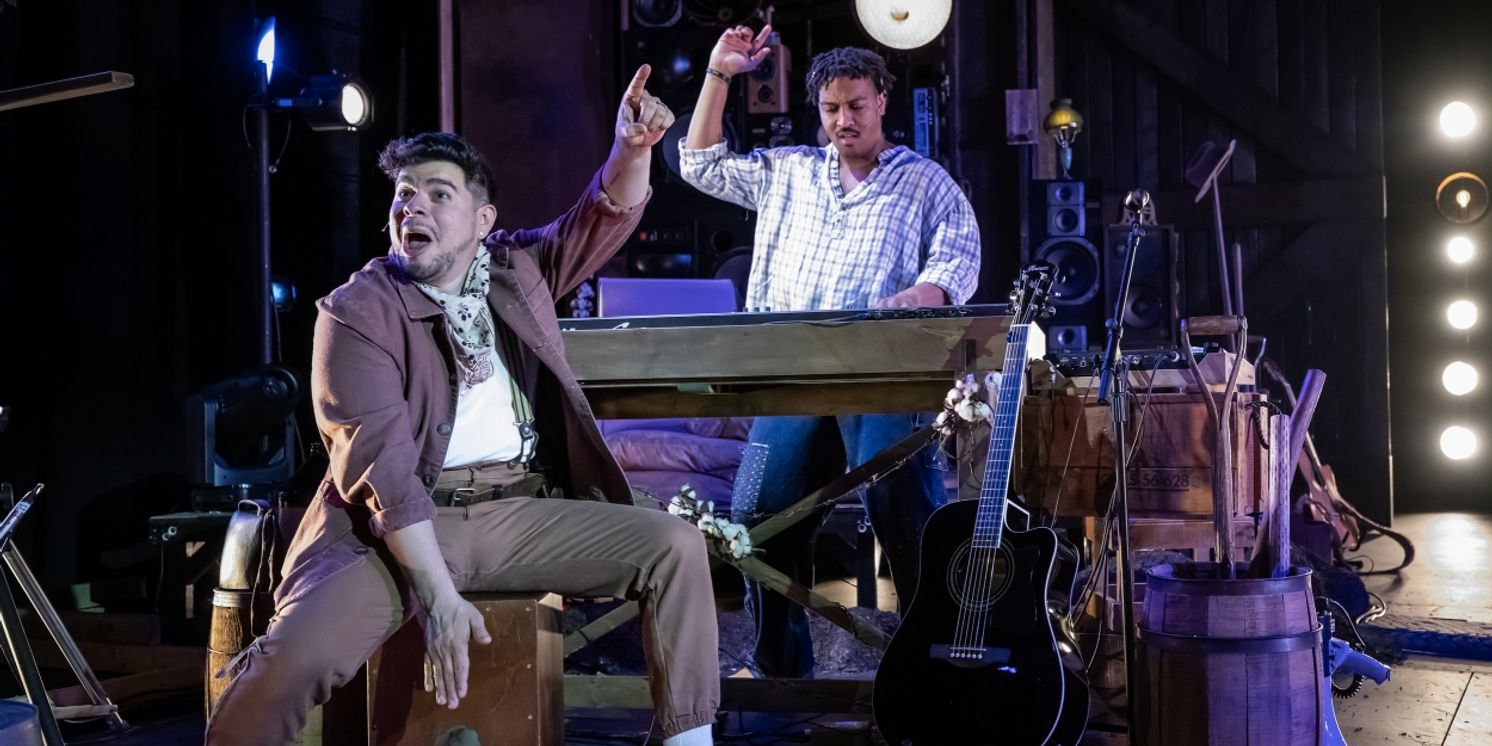
Mosaic Theater Company’s stated mission is to produce “bold, culturally diverse theater that illuminates critical issues.” If that’s the aim, it’s hard to imagine a more triumphant success than the show that opened at the Atlas Performing Arts Center on May 16th.
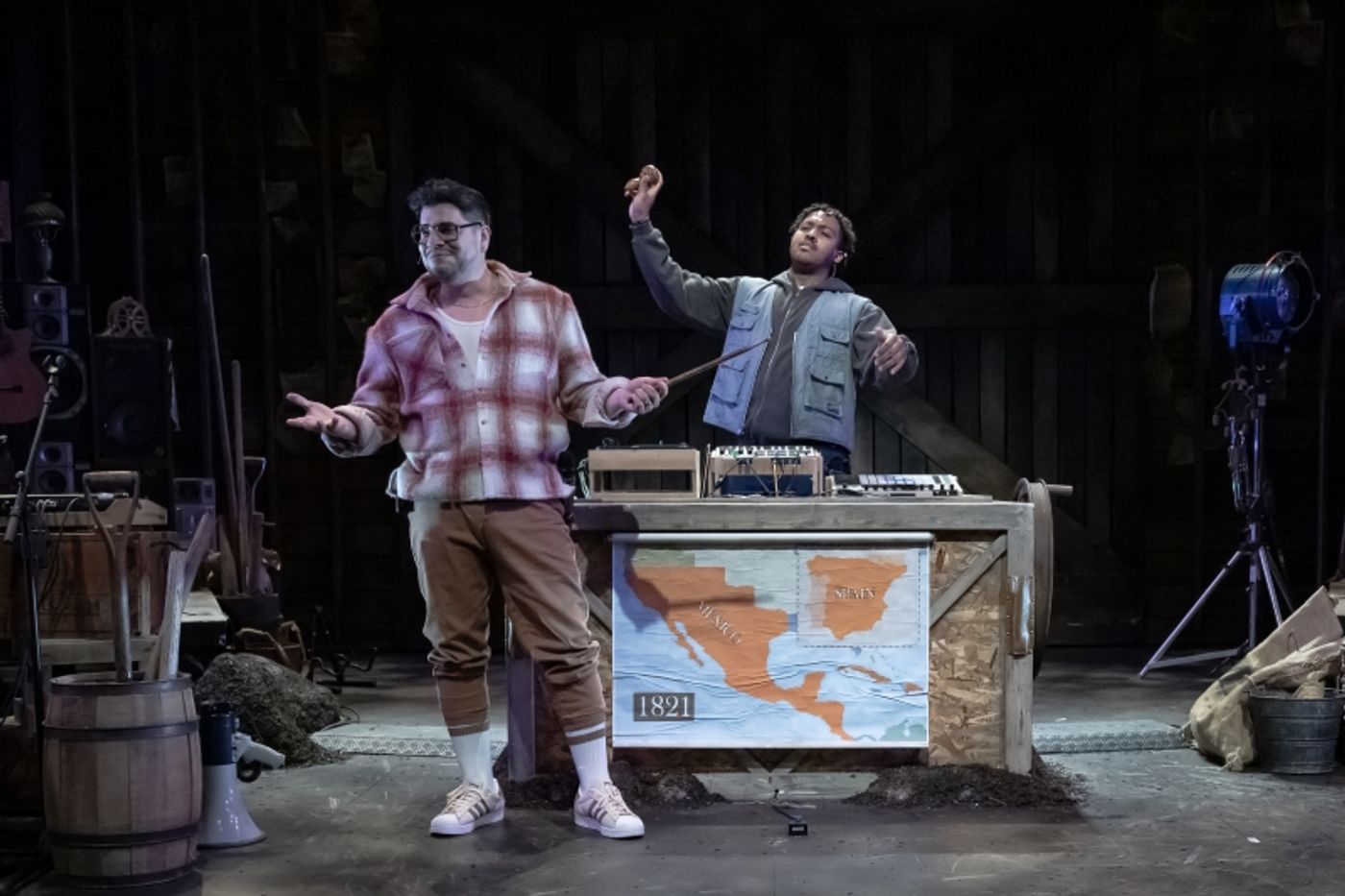
Mexodus is a theatrical experience like no other, written and composed by its two stars: Brian Quijada and Nygel D. Robinson. Part musical, part seminar, part meditation on present-day race relations and part activist journalism, Mexodus sets out to unearth the deeply buried history of African-Americans who fled to Mexico to escape American slavery, and the unexpected allies they found on the other side of the Rio Grande.
Quijada and Robinson begin by announcing that all the sounds of Mexodus will be created live by the two of them in real time. This, in itself, is by no means a first among contemporary musicals – but it can’t be overstated the degree to which the sheer skill and mind-boggling execution on display here blows similar concepts out of the water.
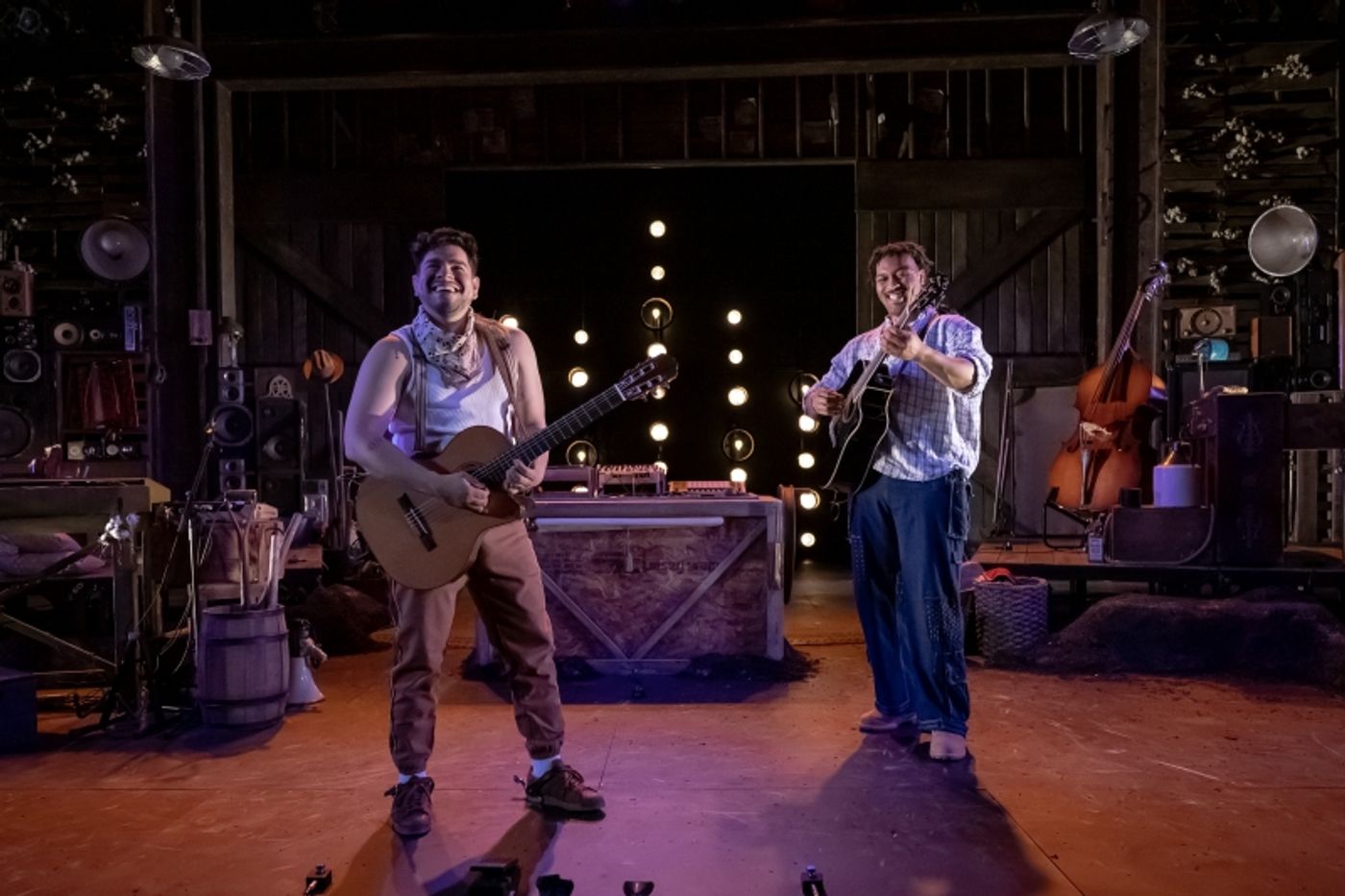
First of all, both men are incredibly talented multi-instrumentalists. The way the two bounce from beat boxing to acoustic bass to piano to guitar to trumpet could begin to feel like a shallow gimmick if they were any less impossibly good at everything they set their hands on.
But all that only serves to underscore their voices. Quijada is a smooth and seductive balladeer one moment, the next he’s electrically rapping in English and Spanish almost simultaneously. Robinson’s pitch-perfect crooning is heartbreaking, and the absolute polar opposite of his fiery, lightning-speed patter.
And yet there’s an entire extra layer to the complexity of Mexodus’ score. A table placed front and center hosts a turntable, a musical controller, and a sequencer. To the left, embedded cleverly into the set, is a drum machine, and festooned around the entire stage are pedals. When expertly puppeteered by Quijada and Robinson, all these gizmos and gadgets come together to turn two men and some instruments into a richly layered, pumping soundtrack that feels polished enough to have been the result of weeks of recording sessions at a studio.
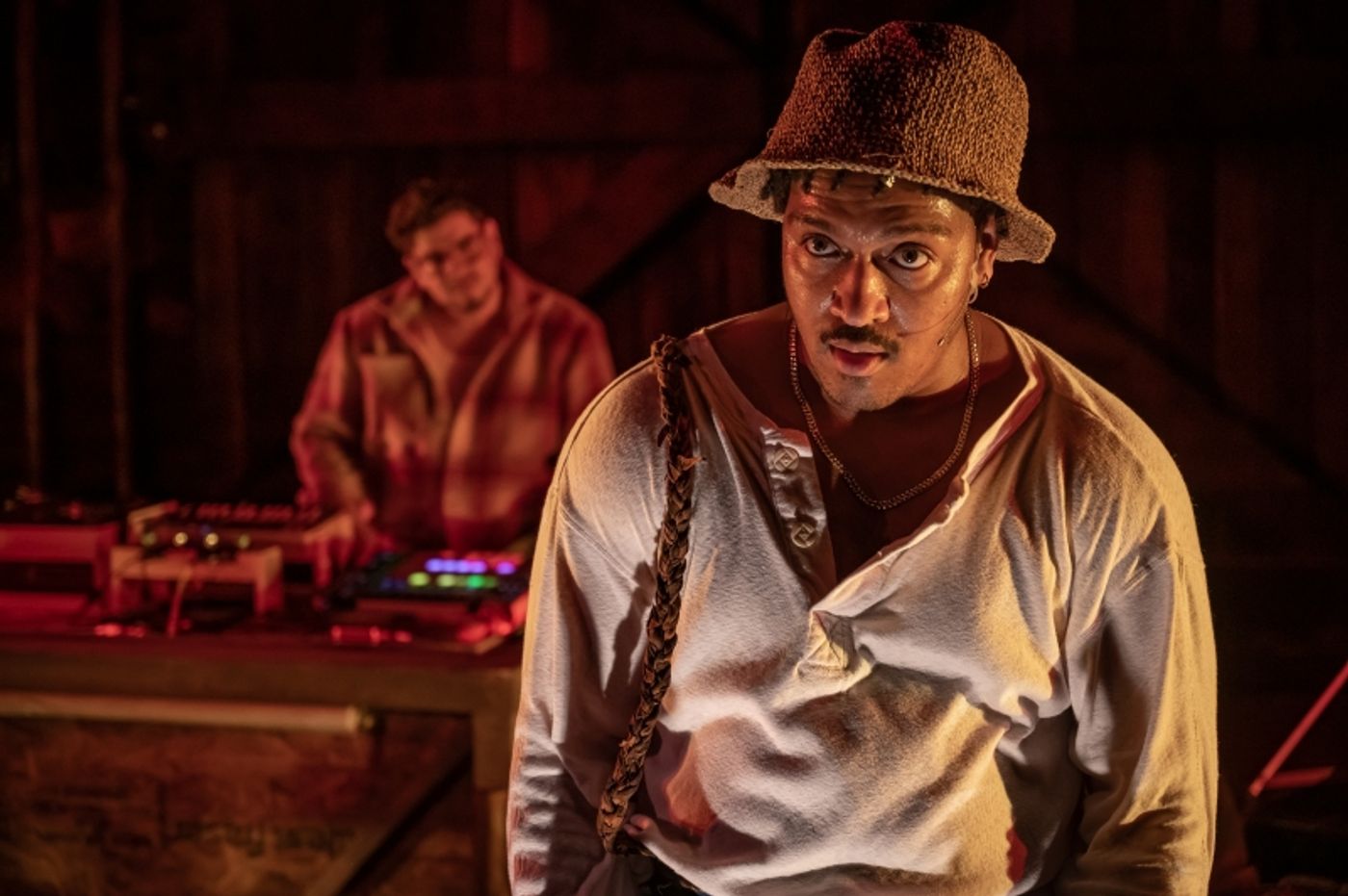
Behind the wizardry Quijada and Robinson show off as they loop and scratch and shuffle each others' live performances is what must have been a herculean effort to actually conceptualize, program and then control such a feat. For that, sound designer Mikhail Fiksel deserves star billing.
Still, Mexodus is more than just a highly impressive tech demo. The writing is gripping, the lyrics are sharp and biting and the score is intricately woven from rich musical influences that range all the way from Latin grooves to soulful jazz to bouncy hip hop. The interplay between the writing and the performance and the audio manipulation is ingenious, with motifs and threads interweaving throughout the entire 90-minute runtime.
Not content for Mexodus to simply be a feast for the ears, scenic designer Riw Rakkulchon fills the intimate set with impeccable details and constant motion, creating surprising tableau after surprising tableau. Mextly Couzin’s dazzling lights effortlessly evoke campfires, storms and the underwater depths of a river.
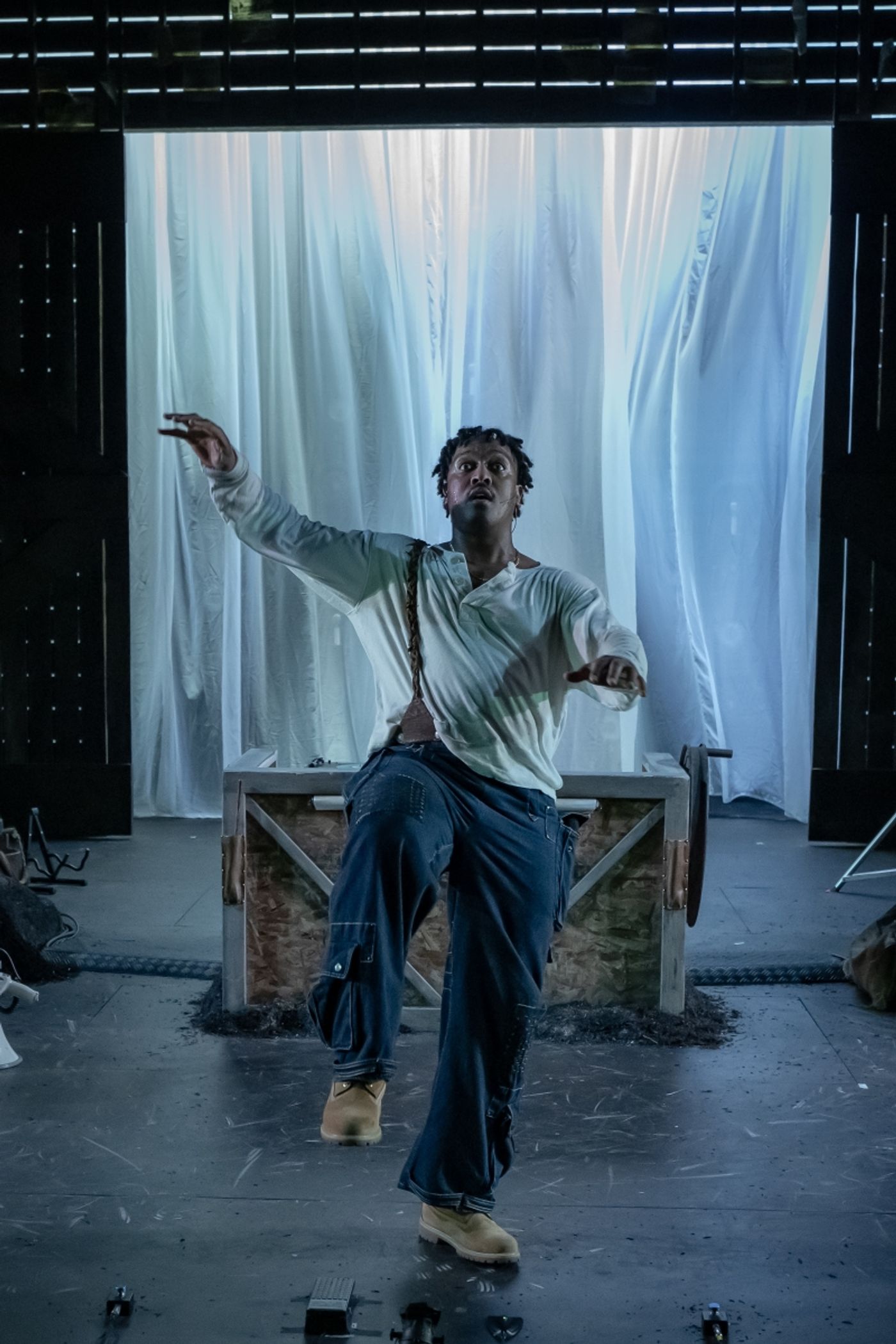
A work so bombastically ambitious on every single front seems destined to tip over at any moment. It is the assured, confidant hand of director and costume designer David Mendizábal that keeps this epic tightrope act firmly planted. Beyond simply juggling all the many unique components of Mexodus, Mendizábal balances the frenetic energy coursing through the show’s veins with quiet, tender moments and takes time to indulge in long, wordless sequences that make this fast-paced one-act feel infinitely varied.
These are the many pieces that are put to work in telling Mexodus’ story. Robinson plays a Henry, a Black man enslaved on a Texas plantation. One day the plantation owner’s wife falsely accuses him of attempted assault, leading to a brutal beating. Fearing for his life, Henry kills his master, then attempts to flee the Lone Star State by way of the river that divides it and Mexico. Not knowing how to swim, he almost drowns and is bashed against the rocks, but is saved by a Mexican farmer.
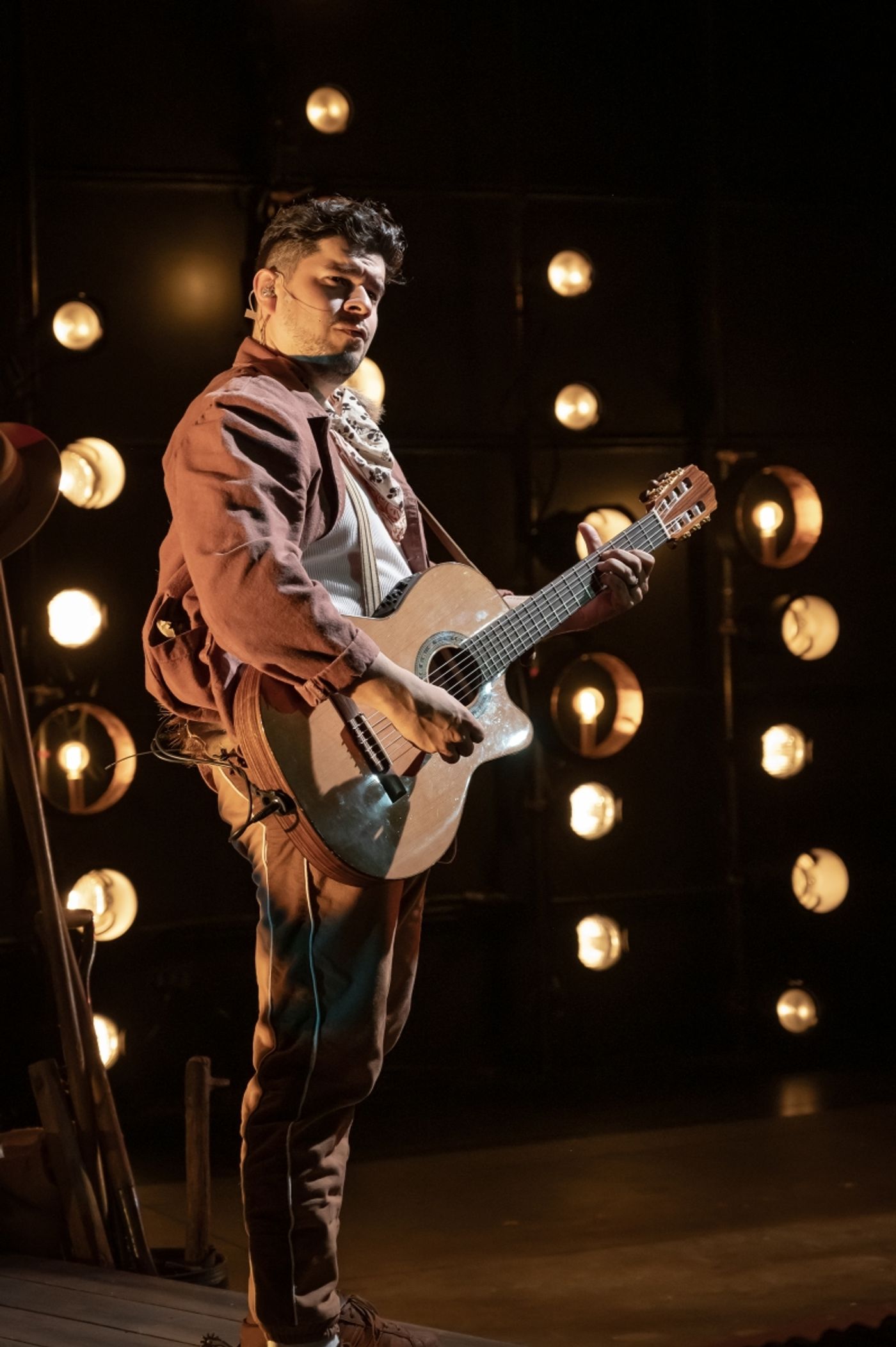
Carlos, played by Quijada, is a former soldier still reeling from his country’s losses to the United States. Although the two come from very different backgrounds and are initially wary of each other, their shared experiences of American cruelty slowly bond them together, leading to a partnership that will salvage them both.
Amongst a sea of biographical fiction lionizing the great men of history in familiar stories told again and again, Mexodus stands out as something completely different. Henry and Carlos are, by their writers’ own admissions, composites loosely based on those history has all but entirely ignored. Quijada and Robinson make no bones about the fact that, as writers, they have fictionalized and dramatized people and events. Mexodus isn’t pop history. It’s a living, experiential history desperately seeking to shine a light on hidden truths neglected by textbooks.
Considering all that, what is most surprising about the show is its undying sincerity and optimism. Of course, Mexodus deals with heavy subject matter in confronting some of this country’s darkest cruelties, and as such there is a lot of pain and anger in the writing and performances. But Mexodus is never swallowed up by that anger; Quijada and Robinson always find a way to lift themselves and face upwards towards the light. Not many could pull off such somber grief alongside such buoyant joy.
Mexodus is a very rare thing. Many musicals have great soundtracks worth listening to. Some even have great scripts worth reading. There are even some with costumes worthy of a runway, or set pieces that could hang up on a museum wall. But Mexodus is that one in a million spark where absolutely everything has come together to make something truly extraordinary. This is theater that absolutely needs to be seen, and be seen live.
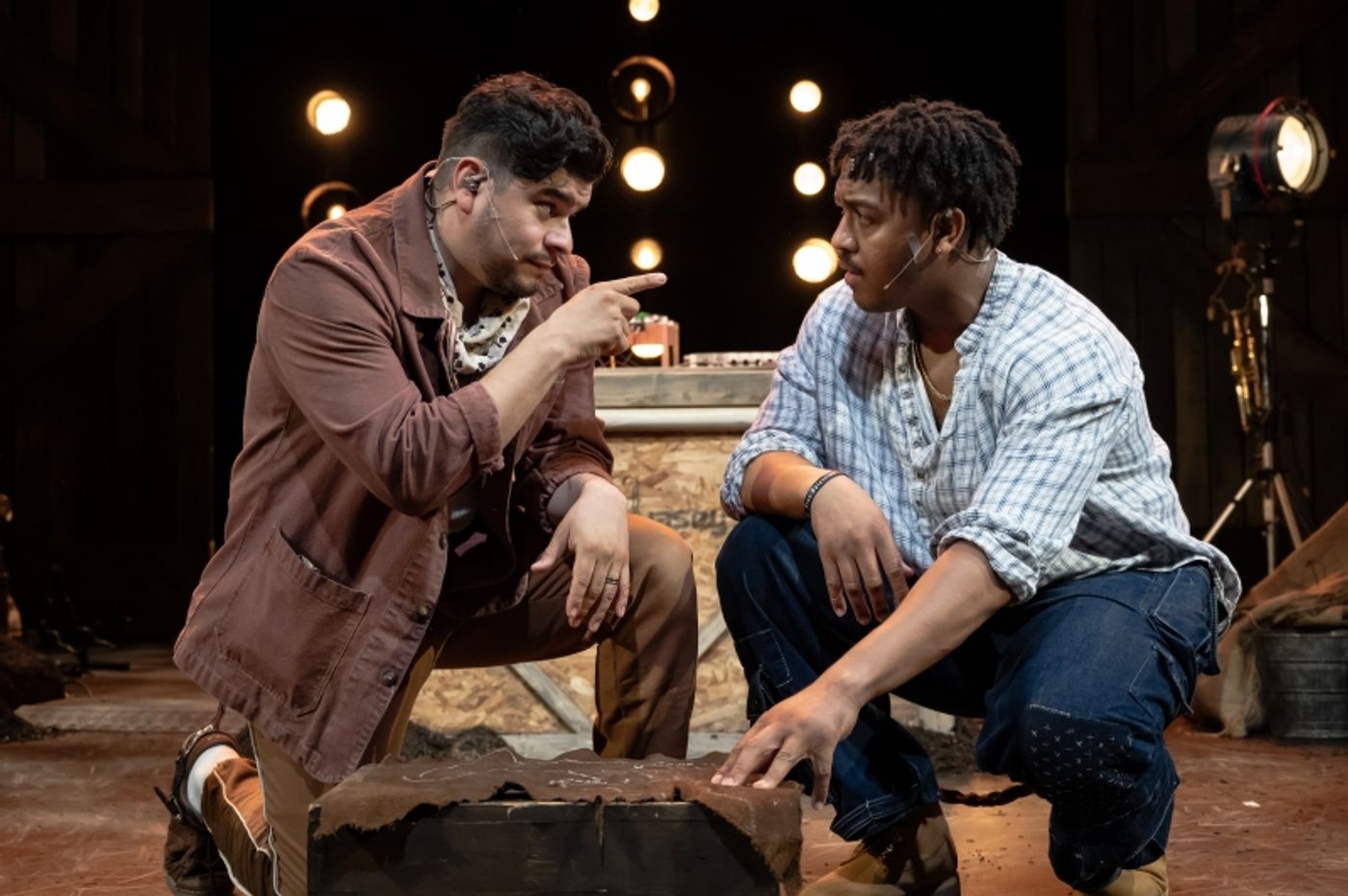
Mexodus runs through June 15, 2024 at Mosiac Theater Company of DC at Atlas Performing Arts Center. Performances are 90 minutes long with no intermission.
Reader Reviews
Videos

